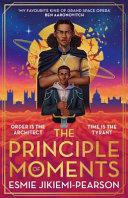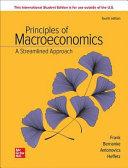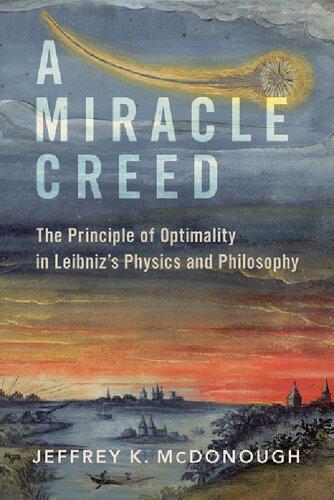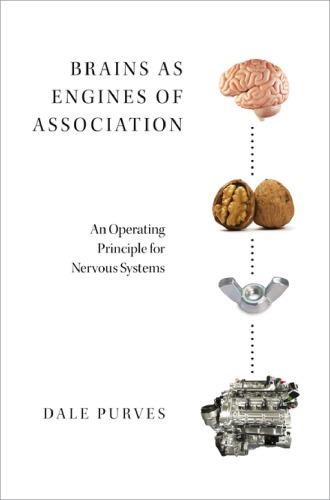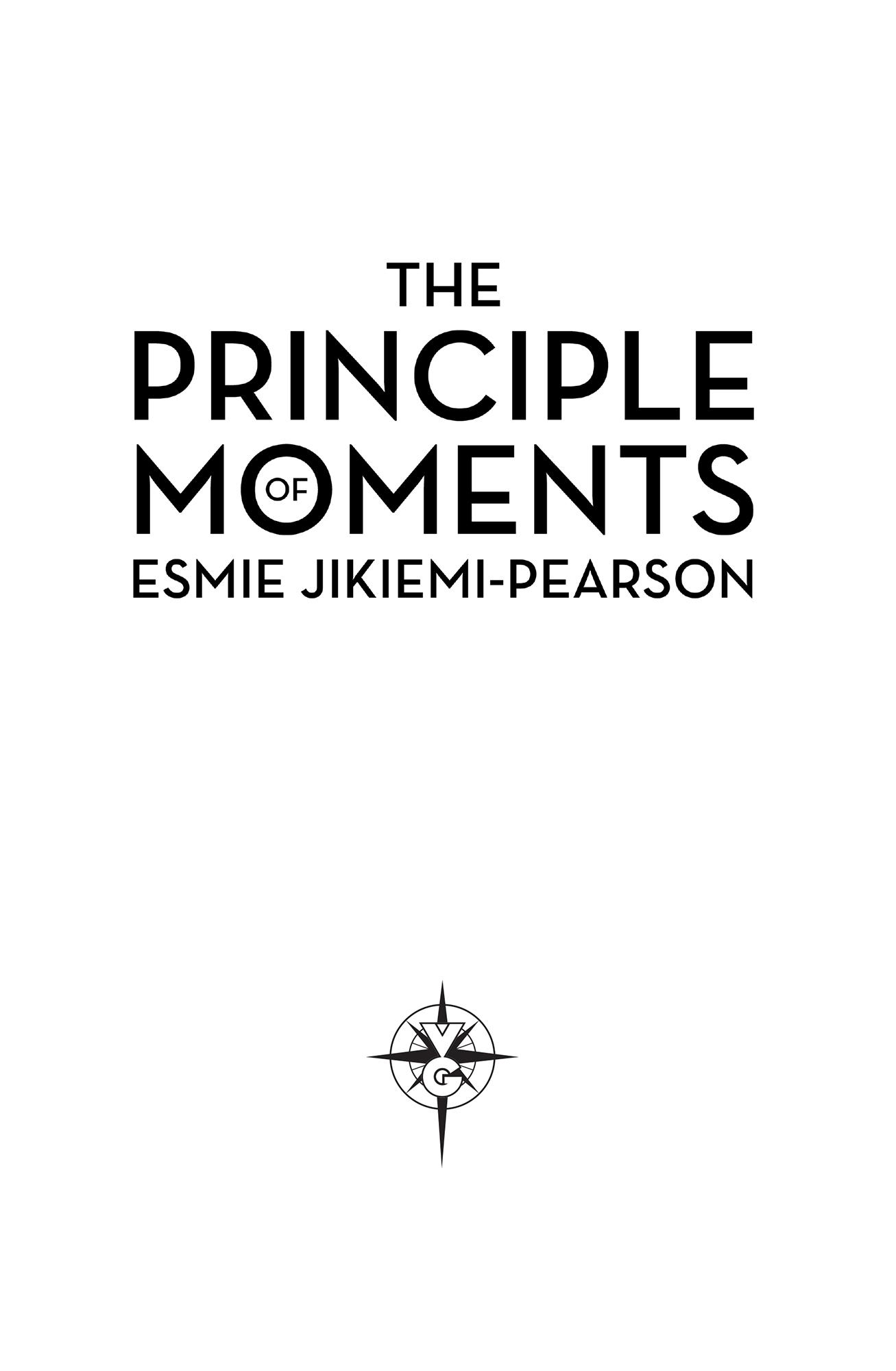The Principle of Moments Esmie
Jikiemi-Pearson
Visit to download the full and correct content document: https://ebookmass.com/product/the-principle-of-moments-esmie-jikiemi-pearson/
More products digital (pdf, epub, mobi) instant download maybe you interests ...
The Principle of Political Hope Loren Goldman
https://ebookmass.com/product/the-principle-of-political-hopeloren-goldman/
Principle of Macroeconomics: A Streamlined Approach 4th Edition Frank
https://ebookmass.com/product/principle-of-macroeconomics-astreamlined-approach-4th-edition-frank/
Whispers of the Heart Rose Pearson
https://ebookmass.com/product/whispers-of-the-heart-rose-pearson/
A Miracle Creed: The Principle of Optimality in Leibniz's Physics and Philosophy Jeffrey K. Mcdonough
https://ebookmass.com/product/a-miracle-creed-the-principle-ofoptimality-in-leibnizs-physics-and-philosophy-jeffrey-kmcdonough/
The Kiss Of Deception (Crônicas de amor e ódio) Mary E. Pearson [Pearson
https://ebookmass.com/product/the-kiss-of-deception-cronicas-deamor-e-odio-mary-e-pearson-pearson/
The Heart of Betrayal Mary E. Pearson
https://ebookmass.com/product/the-heart-of-betrayal-mary-epearson/
Brains as Engines of Association: An Operating Principle for Nervous Systems Dale Purves
https://ebookmass.com/product/brains-as-engines-of-associationan-operating-principle-for-nervous-systems-dale-purves/
Breakthrough Coaching: Creating Lightbulb Moments in Your Coaching Conversations 1st Edition Reynolds
https://ebookmass.com/product/breakthrough-coaching-creatinglightbulb-moments-in-your-coaching-conversations-1st-editionreynolds/
The Underpants of Chaos Sam Copeland & Jenny Pearson
https://ebookmass.com/product/the-underpants-of-chaos-samcopeland-jenny-pearson/
TotheBlackwomenwhowroteawaytothestars,andshowedme howtodreamthefuture.
Dedication Title Page The Beginning The Middle The End
Part One
Chapter One
Chapter Two
Chapter Three
Chapter Four
Chapter Five
Chapter Six
Chapter Seven
Part Two
Chapter Eight
Chapter Nine
Chapter Ten
Chapter Eleven
Chapter Twelve
Chapter Thirteen
Contents
Chapter Fourteen
Chapter Fifteen
Chapter Sixteen
Chapter Seventeen
Chapter Eighteen
Chapter Nineteen
Chapter Twenty
Chapter Twenty-One
Chapter Twenty-Two
Chapter Twenty-Three
Chapter Twenty-Four
Chapter Twenty-Five
Chapter Twenty-Six
Chapter Twenty-Seven
Chapter Twenty-Eight
Chapter Twenty-Nine
Chapter Thirty
Chapter Thirty-One
Part Three
Chapter Thirty-Two
Chapter Thirty-Three
Chapter Thirty-Four
Chapter Thirty-Five
Chapter Thirty-Six
Chapter Thirty-Seven
Chapter Thirty-Eight
Chapter Thirty-Nine
Chapter Forty
Chapter Forty-One
Chapter Forty-Two
Chapter Forty-Three
Chapter Forty-Four
Acknowledgements
Credits
Copyright
The Beginning
Thisisastorywe are hesitanttotell,thoughitistruewe are many lifetimesremovedfromitnow.
We recorditbecauseitisourhistory, andthroughourhistorywe illuminate our future, and through this ritual of illumination we find thepower to shape that future. We findprecedent. We find order . Indeed,theoldmandateringsinourears—OrderistheArchitect. Howwerepentforthatnaivetenow,afterthefact.
Itiswithregretthatwe mustinformyou thistalesurvivessolely infragments,salvagedatgreatpersonalrisk.Asfor itsending,that isclearestofall,havingonlyjustcometopass.
Perhapsthisisnotsuchabadthing.
Perhapsthisisatragedy.
Perhapsthatisforyoutojudge.
Butwedigress—andtherewillbetimeenoughforthatlater . Here,then,ishowthestorystarts.
In the beginning, there were no heroes to speak of. This, we call the Dead Age, as it preceded the Age of Life; the Life that our heroes would later restore after overcoming so much peril.
During the Dead Age, shadows reigned and no plants grew. During the Dead Age, the rain fell as acid and poisoned the rivers, souring the oceans and drying the land. Creatures with twisted limbs and savage mouths ruled the jagged crags, their many-hundred eyes and wicked spines glinting in the sun’s red light.
During the Dead Age, the planet was in pain, as the talons of these creatures dug ever deeper into Her flesh, and the acid rain scorched Her past all recognition. Where once She had been blue, and brightest pink, dappled with jewelled purple and lush, lively green, She was now muted grey, carbon-black, and crumbling.
She had forgotten Her own name—all She knew of Herself was the agony.
Soon (by a planet’s standard—so not very soon at all by ours), She grew weary of being corroded, grew weary of the pockmarks and lightning strikes and tectonic shudders, grew weary of the effort it took to push hot magma out of fresh wounds, weary of each split of scar tissue and each gout of boiling blood forced from beneath Her mantle to harden over Her tender skin.
So, She carved from the earth three heroes who would rid Her of this monstrous blight, find the Life She had lost, and bring it back into the light.
From the shadow. From the river. From the mountain.
A shield. A sword. A crown.
Adesola. Sensit. Dandeyi.
Three heroes. One prophecy: save the world.
‘A Complete, Annotated History of Chasca, Including Relevant Translated Mythologies. Chapter: Scroll the First’ by I. Nisomn, exacolyte of the Aonian Archives.
(Archivist’s note: This text by I. Nisomn is the only remaining source at our disposal regarding the mythos of that strange planet, Chasca, forgotten by the universe but not forsaken by its scholars, it would seem. This key episode details the origins of the first of three prophecies, of which two have purportedly come to pass, and which all, as reported by Nisomn, foretell great calamity, and can only be thwarted, or fulfilled, by three brave heroes. The author, Nisomn, was one of our most promising acolytes, with an affinity for preservation that saved many a crumbling volume. Though we mourn his flight from the Guild, we wish him luck with
whatever endeavour it was that he felt could not be completed within our hallowed halls.)
The Middle
Muchofwhatwe now knowrelieson thewordofthosecloserto it all than we were: visions written down, memories extracted, lifetimespreservedandtranscribed.Itisclumsy, butwehavealways been clumsy. We see that now. If only … But, no. Even we must learnfromourfollies,graveandblood-drenchedastheyare.
By thistime,thetimeofthechild’sbirth,theAgeofLife brought intobeing by our Heroes was almostover, almostdead,itsfounding heroes and their deeds long relegated to halls of myth and the opening verses of the planetary epos. Though it had lasted millennia,itspeace was dealta mortalblowby theinevitablearrival oftheSecondProphecy, andkilledforever by thegreat andterrible betrayalatitsheart.
Here,then,isthestory’sgracelesslyrecollectedmiddle.
Once, there was a girl born amid chaos.
It was the dying day of that same civilisation our three heroes had fought to begin, so long ago. As the child took her first dustchoked breath, ideals shattered and monuments crumbled, but her eyes remained stubbornly shut, firelight glimmering off eyelids sticky with fluid, brows faint and indistinct—so she did not see the violence of the world for what it was.
(Yet … Did not see the violence of the world for what it was yet. Later, she would. Later, it would be written in the stars; every single one of them a part of it. Empire. But not yet.)
The girl’s mother gathered her to her chest with shaking arms, pushing sweat-soaked hair from her face and gazing at her daughter with a blind sense of all-encompassing wonder. She marvelled at the child’s waving hands, curled into fists, fingers as delicate as the bones of a bird, wrists chubby and dimpled, thinking if only her fathercouldseehernow.
But her daughter’s father was dead and had died protecting them and all he loved from ruin, so it was a difficult thought, to say the least, and one she pushed quickly aside.
(That idea of absent family, of missing heritage—of not being quite sure what to do with that idea, of pushing it quickly aside— would turn out to be a recurring theme. A sparking pattern in her neurons and the neurons of her progeny; a line in a prophecy; an echo of that violence writ in starlight.)
The cracking of stone and the deadened sound of falling ash faded into the background as she moved her fingers to the artery running along the side of her daughter’s neck. A sudden flutter against her fingertips—more like a moth’s wings beating than a heart —filled her chest with giddy laughter, and oh, it was so easy to marvel at this new life, this child that might not see the sunrise, and yet was so full of light, simply because she did not know what the sunrise would bring.
Her mother knew though, so she pulled herself to her knees. She had never felt pain like this, yet she stood, because if she did not then her daughter never would. The palace was collapsing, the hallways groaning and crashing down around her, but she walked on, her daughter cradled in her arms.
There was no ship waiting for them in the atrium, so the queen drew in a breath and spoke one into being—word and will coalescing into metal and fuel and a chamber of ice made for sleeping.
The effort nearly killed her.
And so, the queen of a planet whose people had fought the bloodiest civil war in three millennia pushed her daughter into the only holding pod of the conjured spacecraft, closed the hatch, and watched it launch.
And so, the queen of a planet whose people had fought the bloodiest civil war in three millennia—and destroyed themselves in the process—collapsed to the granite floor of her castle and wept.
For her daughter, who was the sole heir to the throne, and the last hope of their people.
For her daughter, who was already hurtling across the galaxy towards a new life, inside a cryogenics unit where she would sleep for year upon year, until the time was right.
For her daughter, who would grow up abandoned and confused, never to inherit the crown that was her birthright.
Excerpt of a vision relayed by a trustworthy source whose identity cannot be revealed at present.
(Archivist’s note: You must excuse my poetic licence. Artistic liberty is something I am rarely afforded, and this tale begs to be transformed into scripture; everything about it is epic.)
The End
Andnow for theending,thepartwe are mostfamiliarwithandcan atleasttellinitsentirety.
Thisclosingismanyyears removedfrom boththebeginningand the middle—perhaps this is why we failed so astronomically in anticipatingit—butitdrawsthemtocompletionnonetheless. Itisnotimpartiallytold;thatwouldbenighonimpossiblewitha storylikethis.
On the contrary, we see the importance of sentiment now. Of empathyinourhistorytelling.Ofanopenheart.
That was, after all, what you opened this volume in search of, wasn’tit?Astory. Well,thisone isaboutpeople,ofcourse, andthe incredible things they are capable of when faced with equally incredible, seemingly unconquerable injustice. It is a story about a girl and her friends, and how hard times made heroes of them, whether they wanted to be or not. It is a story of loss, and adventure, ofdaring, and of courage burningbright in the bleakest oftimes.Itisastoryaboutlove.
Andthisishowitends.
PartOne
‘We turned the Earth, our home, into a wasteland, and left. Now, we have arrived here, alighting upon a wasteland with no other choice but to make it our home. Like a fable, nature has given to us what we gave back to her, and so we must rise to the task of turning this desert into a soil rich enough that we may begin to sow within it the seeds of our future.’
From the diary of a human settler on Gahraan, born aboard the ark ships, killed during the Emperor’s discovery of the settlement.
Chapter One
[planet: Gahraan] + [location: The Lower Quarter] + [year: 6066]
Asha Akindele was knelt in prayer, chanting the sacred words of imperial petition and invocation that had been graven unwillingly on her memory since birth.
Her heart beat steadily in time with the rhythm, her hands opening and closing to its chorus.
We welcome our Emperor—may He rule forever—into our hearts andintoourminds,unflinchingly.
Her mind, however, was somewhere else entirely.
Equations were solving themselves against the pale red backdrop of her closed eyelids like flowers blooming. Each one yielded yet more numbers, spilling out unknown quantities like gems tumbling from a geode, cracked wide open and sparkling in the red noonday sun. Her head hurt—partly from the loud droning of communal prayer, and partly from trying to wrap her mind around complex mathematical theory in the middle of a temple during a deference recitation—but she soldiered on. As always.
Eventually, the service ended.
Thracin bless us, may He rule forever; Divine Right is Divine Might.
DivineRightisDivineMight.
DivineRightisDivineMight.
The maxim of their government and religion and ruler rang out in whispered reverence through the assembled body of worshippers,
and Asha mouthed along, playing her part even as she blinked rapidly, her eyes growing reaccustomed to the blue light that filtered through the temple’s crystal walls.
Years ago, she’d discovered that the only way to bear all those hours spent kneeling with her head bowed in respect was to close her eyes and discuss, in the privacy of her own mind, exactly how she would leave this planet, given the chance. She had started with the big ideas. Where would she get transport? Steal it from the Imperial Academy of Aeronautics on the other side of the dome. How will you fly it? I’lllearn. I’llmodifythetablettheygiveeveryone atfourteentoaccess theirtimetablesandrationpointsanduse itto hack into the Academy files. I’ll watch their classes at night, over andoveragain,andIwill learn.
One particularly vivid fantasy often sustained her: the sight of her own grinning face in the cockpit of a stolen jet, middle fingers up to the rear-view cams, guns blazing as she blasted the whole place to ash—
Someone nudged her, telling her to hurry up. “Thracin bless us,” she murmured hastily, rolling up her mat and joining the line of people shuffling towards the exit. The headache looming behind her eyes only seemed to intensify with each step, but the thrill of knowing what she held locked safely inside her mind was worth it. Even if it would never leave the confines of her imagination.
Lost in thought, she accidentally bumped into the person in front of her. Everyone was drawing to a stop. The line of people flowing out the doors had halted. A gasp rippled through the crowd, people stepping back. What’s going on? After a few moments, through a gap in the bodies, Asha glimpsed the reason for the delay.
A woman had fallen, collapsing between the rows of worshippers to lie unmoving on the ground. Unconscious due to exhaustion probably. Nothing too dramatic, Asha thought. And yet she was reminded suddenly of an image from her childhood: her first day in the weapons assembly warehouse. The boy next to her had touched a delicate, thinly membraned plasma filament without gloves. The slim cylinder had snagged on a fingernail and torn, sagging and spilling its valuable fluid onto the workbench. He had been taken
away for punishment, kicking and screaming. She’d never seen him again. All she’d been able to do was stare at the broken energy bar emptying its gleaming contents onto the bench like blood from a corpse.
The fallen woman wasn’t bleeding—not yet—but Asha could imagine her blood spilling just like the plasma had, red instead of luminous blue, and infinitely less valuable.
Hulking Lithian guards were already shouldering their way towards the accident, weapons drawn, reptilian limbs bunched with muscle and desperate for a fight. Asha could practically smell the lust for violence rolling off them—that distinctly inhuman stench of scale sweat mixed with the viscous, milky residue of their acrid saliva.
One of them kicked the woman with a clawed foot, sneering as she groaned weakly, tears cutting tributaries down her ashen face.
Soldiers of the Consortium.
A gang of monsters and sadists, who cradled blaster rifles in their similarly clawed hands like they’d been born to use them, teeth sharp and eyes cruel, grease-slick indigo scales glittering in the sunlight—body armour provided free of charge by millennia of evolution on their home planet, Lith, a craggy place covered in sandy rock, not too dissimilar to Gahraan. Her own fleshy human softness was constantly made horrifying in their beady eyes by contrast—lean meat and viscera wrapped in dark brown skin—skin thinner than metal foil, and so much better at conducting pain than electricity.
Keeping her face carefully blank was second nature, the dullness in her eyes less a learned protective mechanism than a by-product of a life lived in terror. A second guard swung back the copper rod he carried as an accessory to his rifle, his arm falling to strike the weeping woman with it. The bright crackle of raw electricity flashed in the dim light, leaping from his scales, turning the woman’s soft weeping into agonised screams. Her elbow slipped, lightning-quick in her convulsions, scraping against the polished floor … and there it was. Blood. Welling to the surface of a friction burn, of all things.
“What are you?” the guard hissed, teeth flashing in the sun. “Whatareyou?”
“Nothing,” the woman gasped, as was expected of her. “I am nothing.”
The guard unleashed another burst of electricity with a flicker of his forked tongue.
“That’s right.”
The man who stood next to Asha shook his head in disgust, but even that movement was subdued. His eyes darted around, looking for someone to share in his disdain, in this small act of moral rebellion. She recognised him. He worked two rows across from her in the factory on the textile recycling day. A bit of a troublemaker, in fact—something which had immediately endeared him to Asha, even though the most basic sense of self-preservation should have ensured that it didn’t.
She wanted to meet his eye.
Thracin,why was she like this? If her mother had been there, had seen her even thinkabout looking at that man, let alone meeting his gaze, she would have dragged her home and beaten her until she didn’t have thoughts, let alone eyes to look with. And Asha wouldn’t have blamed her. People who looked back at troublemakers ended up lying next to them on the incinerator floor.
Then the man’s eyes darted in her direction, catching her hesitant glance and pinning it down like a spider would a fly.
She froze.
Justlookaway, she thought. Asha,justlookaway.
She nodded back at him. It was a tiny movement, more like a compulsion, stilted and terrified.
Adrenaline pounded through her.
Stupidgirl,she thought. Stupid,stupid,stupid.
But of course she had done it.
Asha didn’t think a universe existed in which she had not.
The light of the midday suns blazed brightly above her as the temple disgorged the last of her line into its crystal courtyard. Above her, the shimmering hexagons of the terradome that enclosed the oasiscentred settlement were busy filtering out the harmful UV rays and extreme temperatures that were par for the course on a terraformed desert planet such as Gahraan. Life was inside this dome, and the four others that clustered together in the barren valley that their great-grandparents had thought fit to start a new world.
Outside, there was nothing but scarlet sand and searing heat.
That should be our motto, she thought wryly. Never meant to supportlifebutsupportingitbegrudginglyanyway.
She glanced at the building behind her. The temple was a glorious, beautiful thing. A beacon of belief and faith—a monument to Emperor Thracin and the empire he had created to save the galaxy and its hundred inhabited worlds from annihilating each other. It shone with its wealth—just like everything Thracin owned (except humanity, Asha thought, except me)—like the polished chrome barrels of the guns they assembled every day, like the sword he held in all his statues, like the very stars in the sky—each one a sun or a planet that belonged to him, because—what didn’t? His, his, his, the whole galaxy shining because he decreed it so. Because he liked to cloak depravity in crystal and call it ‘salvation’.
Her heart beat faster just to think it.
Careful, Asha. Remember your scripture; Divine Might is Divine Right.Donotforgetwhatyou areandwhatthatmakesyou. Donot forgetyourplace.
She exhaled shakily, eyes closing for the briefest of moments against the sting of hot tears. Because righteousness felt so good for a moment, but when the thrill was gone, fear was all that remained. Fear and rage, feeding each other in a vicious, endless loop, until she could barely tell them apart.
Walking down the slope of the hill and into the main square of the city, she saw imperial priests of the gentle species, Whid, their long, pale limbs enfolded in white robes, congregating by the path opposite the temple, as kids a little younger than her milled around in small groups, unsure of what to do with themselves.
On an ordinary day, they’d all be in the weapons manufacturing warehouse until their backs ached and their vision blurred, hunched over their stations, putting guns together for Thracin’s soldiers, or third-party stakeholders, or distributor chains, or private security firms—an infinitesimal selection of the myriad corporations that propped up the Consortium like a million grasping hands.
Today, though, with working responsibilities cancelled for the Anniversary, the rest of the afternoon was to be filled with ‘RECREATIONAL TIME’, as their timetables had proclaimed this morning. ‘TO BE SPENT IN PRAYER, OR EXERCISE, OR EDUCATION AT CULTURAL SITES’.
Asha had requested ‘PRAYER: TO BE COMPLETED WITH FAMILY’, just like most of the population, as it meant a few rare, unsupervised hours at home with loved ones. In Asha’s case, she would be able to talk with her mother, Iyanda, who she had barely spoken to in weeks aside from mumbled conversations at bedtime, after her own graduation to the adult warehouse had turned their timetables almost identical.
That had been four weeks ago, by the Consortium calendar. The bureaucrats in charge of all such dreary processes on Gahraan had absorbed old Earthern standards, not bothering to complete any research on their own, and settled on eighteen as the age of human maturation. And so, on her eighteenth birthday she’d said goodbye to her benchmates and the slower pace of life in the adolescent warehouse, and joined the ranks of the adult workforce.
The past month had been the most tiring and mentally draining of her life.
So she was grateful for today’s opportunity to rest, even if it meant spending half of it kneeling in simpering gratitude to the tyrant who had sentenced her to this life in the first place.
‘REQUEST APPROVED’, read her wristband. ‘ENJOY YOUR PRAYER, IN HONOUR OF THE HUNDRED YEAR PEACE’.
The Anniversary: one hundred years of peace.
One hundred years since Commander Thracin had stood on the drawbridge of his ship amongst the dark rocks of A’lkari, and said, now, peace, before crowning himself head of an empire, as if the
inevitability of empire wasn’t perpetual war with itself and its disparate organs.
Asha could have cried at the irony of it.
I spend all day building guns, she thought. Guns for a peaceful empire.
What she wanted to think, however, was, Thracin,you are a liar , and a tyrant, but that was sedition and treason, and she was too frightened. Terrified of the Emperor and his million guns, the guns she built for him, but far more terrified of the thoughts that crowded her every waking second, the thoughts born of her hatred for the throne he had stolen, along with the right of them all to govern themselves. The right to decide when they worked, if they worked, and to what end. The thoughts that said, one day I will leave this wreckofa planet, one day I willfindyou, one day I willmake you pay.
But any anger she felt was quickly smothered by a great rolling wave of fear, that pendulum of rage and terror, ever swinging. All she could see now was the woman, convulsing on the temple floor; the troublemaker, trying to make eye contact and finding her, implicatingher, with a single flick of his gaze.
She felt sick.
And that’s why you’ll never leave, sneered a voice in her mind that might have been her own, or a priest’s, or even the Emperor’s. Thatiswhyyouwillonlyeverplan,andwish,anddream,andnever act.You’rescared.You’realwaystooscared.
Asha scowled as she turned down an alley, grinding her jaw in frustration. She knew she should have conquered the anger by now —the anger at her circumstance, at the system, at the way the world worked, at the way that power and opportunity and luck, even, were all held up by inequality at their very foundations—but maybe that just wasn’t the way her brain worked, and maybe there was too much to be angry about.
Before she knew it, she was ducking into the alleyway behind warehouse number 7 to stare at a rusted old monument in a small square that most inhabitants of Gahraan had long avoided—for good reason.
At first glance, the monument comprised a melted lump of metal, supported on a sturdy pole that thrust the twisted mass of pipes and jagged-edged plates a few metres into the sky, superimposing it against the faint, tessellating hexagons of the dome that flickered above them. A pathetic beam of sunlight fought through the roofs of the neighbouring buildings, shining on the thing, illuminating the grime and the red dirt blown into every rusty crevice.
A polished plaque at the base of the monument read:
HERE LIES THE ENGINE CORE OF THE PRIMARY SHIP THE HUMAN RACE EMPLOYED TO LAY SEIGE TO THE EMPEROR’S GREAT DOMINION
But if Asha looked close enough, she could see faint scratchings on the plates of metal. Letters, or numbers, maybe, written in one of the old Earthern languages. Mandarin, perhaps, or English—both were still spoken occasionally in family homes, amongst others. Spanish, Yoruba, Hindi, French. The ability to read any of those languages had been lost in less than three generations after Thracin came to power writing of any kind was banned in the human settlement, and the older members of the community had long given up scratching letters in the dust.
And yet the memory of the message inscribed on the engine core all those decades ago lived on.
Andnow,tothestars.
A few years ago, she had spotted two lines of writing on a thin sheet of metal near the bottom of the core that she had previously missed. It was close enough to run her fingers over, though she didn’t dare to touch it. I wish I could read it for myself, she had thought at the time, cringing at her own illiteracy for anything that wasn’t the sanitised, clinical symbols of Universal Standard and wondering at all the other messages that had been lost, or purposefully mistranslated, and had felt like she was being hit over the head, repeatedly, with a cudgel.
She looked around now, at the grey walls that surrounded her, at the red dirt beneath her feet. This was their punishment, for building ships capable of interstellar travel, for failing to save the planet that
had birthed them; an indefinite indenture, working to repay their debt and all of its compound interest, until one day, if the Emperor was to be believed, when they would be free to go out into the stars again and find a future somewhere else.
Workhardandyouwillberewarded.
It was the kind of narrative only a certain type of person could subscribe to without it being called self-deceit. She was still figuring out exactly who that was, but she knew with absolute certainty that it wasn’t her. That it would likely never be her.
Beneath the engine core, there was another metal plaque nailed into the floor. It was a statement of ownership, a claim to Gahraan, staked by the person who owned the planet, and didn’t need it, but wouldn’t give it to the people who did, because an investment meant more to him than the quality of a few hundred thousand lives. “How could we have known,” Asha murmured to herself, “that it was him?”
THIS LAND IS OWNED BY EMPEROR AI’VAREK THRACIN, GLORY BE TO HIM AND HIS MIGHT, PURCHASED IN THE SIX THOUSANDTH YEAR OF THE GALACTIC CALENDER. INVADED FORTY YEARS AGO, IT NOW BOASTS THE LARGEST MANUFACTURING PLANT IN THE SEVEN OUTER SECTORS.
Asha sighed. This small exhibit was simply a reminder that they stacked machinery parts in a factory all day, their whole lives, and that they would continue stacking those same parts until the resources the empire expended on them became more than the resources they produced, or they got sick, or got back problems, or looked at a guard wrong and were disposed of. It made Asha want to scream, or throw something, or violently stab someone— preferably someone whose name rhymed with ‘basin’—but she couldn’t. There were a lot of things she couldn’t do though, so she was used to it. Oh, but that didn’t mean it didn’t make her angry. Angry was Asha’s second skin, one she hadn’t taken off in years. It was coded into her DNA, right alongside survive and by any means necessary.
Asha walked to the opposite side of the small square, where a larger alleyway would take her to the parallel thoroughfare. It was
the long way home, but it was still a way. She’d be late, and her mother would be mad, and they’d probably fight and then go to sleep.
Just another day.
Walking through the alley, she turned onto the street. The sun was setting. In the distance, a hazy cluster of buildings at the edge of the dome flashed orange in the pre-dusk light.
The Imperial Academy of Aeronautics. The black and white banners of the Consortium billowed in the breeze, but the school itself was empty—all the students had returned home to celebrate the holy day.
The school did not admit humans, of course. It was a boarding school for the talented children of the galaxy’s elite, and its creation had been the catalyst for the indentured servitude of humanity. She wondered if they taught the students that—if they knew the true history of the small planet they called home during the school year. Here was the version she knew.
Humanity, hurtling through the stars in a fleet of rapidly degenerating generational ark ships, forced to abandon an Earth that had been deemed ninety-eight per cent uninhabitable in the 2070s, had been praying for a miracle, and had found Gahraan instead. Initially, Terraforming had been limited to four key spots— one around each landing site. They had built a new life out of sand and recycled metal, all the while daring to dream of the future. It had been that way for two years. Two years of peace. Of existing on a planet no longer dying under their feet.
Until Thracin had won a war they hadn’t even known was happening, finished his unification of all the inhabited worlds in the galaxy, and begun the business of building his empire. First Tetrarch of a council of four, he had crowned himself head of a galaxy-wide association of corporations that called themselves the Consortium and promised to deliver their citizens into a new age of prosperity, driven by competitive markets and controlled by an elite few. By the time humanity had realised Gahraan was an outlying planet of a galaxy teeming with life, three thousand years more developed than they were, it was too late.
They had listened to his victory speech so many times over the years that it had become permanently etched into the mind of every citizen, just as he had intended, and Asha was no different. The words echoed softly in her memory, accompanied by the images her mind created in response to the audio crackling out through speakers in the square, or in the temple, or at home: a tiny figure in front of a huge crowd, lifting a sword to the sky, and then sheathing it in the ground of his stronghold planet, A’lkari.
“And now, peace. A hard peace, enforced by any means necessary.
“We have foughttoolongandtoohardagainstarchaicpowers to fall victim to the structures that brought ruin to them. Their insularity was their failure, their refusal to progress their downfall. They believed dogged preservation of the old ways would save them, but it was only by creating a new path that we were able to save ourselves. And so, I promise you: this galaxy will be united forevermore.Nocitizenwillbeconstrainedbythelimitsoftheirkind. No citizen will be without opportunity to better themselves. For, under my governance, each one among you shall be the arbiter of your own fates. Work hard for your fellow citizens, andyour fellow citizens will thank you. Work hard, so that the empire can work harderforyourpeace.Workhardandyouwillberewarded.
“Letitbeso,asIhavedecreedit.
“DivineRightisDivineMight.”
It was the same slogan he’d used when he ordered his troops not to leave the places they had freed, until his kindly ‘liberation’ came to mean ‘unending occupation’, and his sphere of influence came to hold the entire galaxy. Before Thracin’s ascendancy, all the planets had been on the brink of mutual destruction, each trying desperately to protect their territory from alien threat. Thracin had appeared seemingly out of nowhere, and his campaign to unite the hundred known worlds under one banner, one system, one empire that would bring increased profit and abundance to all, had gained followers so fast that, within a decade, they were a major player on the galactic stage. Thirty years later, they had succeeded, becoming an army somewhere along the way. Universal Standard, previously a
mercantile tongue, had quickly become the standard language of the empire, as all the species of the hundred worlds—still reeling from the fallout of the war started by their territorial forebearers—found themselves moving swiftly into an age of high-volume interplanetary trade and commerce—in product, customs, and the imperial rhetoric that circulated constantly, swapping back and forth and back and forth until it had seeped into the ground and the stars and all the space in between.
It was only when Thracin sent scouts to scour his various properties for locations suitable for his Imperial Academy of Aeronautics that the human settlement was discovered, and its people enslaved.
That had been decades before Asha was born.
Gazing at the glass windows that glinted in the distance, a familiar feeling rose in her chest. Obsession; hatred. It was hard to tell them apart most days. Usually, she didn’t try to, and today was no exception. Instead, she thought about her plan. The one where she would finally have enough intel, enough courage, and enough pure recklessness to cross the mile of desert that separated them, break in, and steal a ship.
It was an impossible dream.
Of course, it was.
But that meant it was safe.
She wondered if the sight of the place would ever stop cutting her so deeply. Probably not, she thought, and turned away, jogging down the shortcut past the incinerator to the darker, meaner streets of the Lower Quarter. Her mother was expecting her home.
A figure much too tall to be human was standing in her street.
At first Asha didn’t even see them—dark, skulking figures were easily lost in the darkness of the desert at night, and a long, black cloak rendered them shapeless, putting Asha immediately on edge. She froze, watching from halfway down the street as the person knocked on the door to her family unit.
A cold sweat pricked under her arms. They nevergot visitors they didn’t know, and her mother was home alone.
Her heart slammed against her ribcage as her mind went into overdrive. Childish fears surfaced first: What if it was an imperial scientist, one of the Magekind, come to snatch her away for one of their sick experiments? She’d seen it happen a few times, but not recently—sleek ships disgorging pale, white-robed people who wielded strange weapons, who took twenty or so humans back with them to run tests on. But this alien’s cloak was dark, not white … Shit. What if it was the government? Had they discovered her escape plans, somehow? What if they had realised how she’d pried back the lines of code and security defences one by one, with an illegally modified tablet as the tool? What if they’d found the hours of footage—over two thousand hours of classroom footage—mined from the Imperial Academy of Aeronautics’ archives over a period of seven years, and followed it right to her door?
Run, was her immediate thought.
She didn’t know where it came from—running got you nowhere inside a militarised dome, besides inside a pair of handcuffs staring down a lethal injection. Should she intervene? Give herself up? Her mother didn’t deserve to suffer for Asha’s recklessness.
Thracin,she was so stupid. Fear squeezed tight at her throat, and in a painful moment of glittering clarity, she saw all the possible consequences of her thoughtless rebellion land upon her mother, who would do anything to protect Asha—even lie.
Near frantic now with terror, she scanned the visitor’s cloak for any identifying signs, but it was so dark she couldn’t make out any more details. Maybe she could—
Asha’s mother opened the door.
She could see what Asha couldn’t: the visitor’s face. As she took in whoever it was that stood before her, Iyanda’s mouth opened, as though she wanted to scream—as though this person, whoever they were, scared her more than the guards and their guns that would inevitably appear to punish her for the offence of verbalising her fear. And there was a look in her eyes, dark with terror, that made
